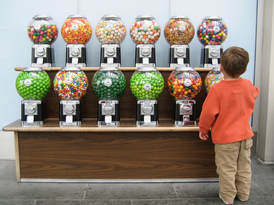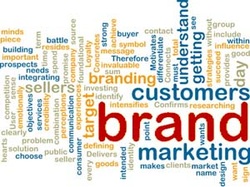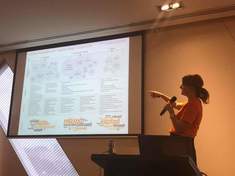|
We have been immersed in the fragrance category for a while now and wanted to share some of the reasons why signature scents are no longer a thing amongst consumers in this category, like they once were. Here's our summary:
For a broader discussion on this topic, check out this blog post from Wicked Fumes who we worked with in obtaining these insights.
0 Comments
 Personal devices that read our emotional states will need thorough concept and product testing in order to meet our needs India has a thriving tech industry that out performs Silicon Valley. So when they make announcements like this, 'Artificial Intelligence-powered devices to read users' emotional state, says research by Gartner', then it really gives me pause. First off. It's mind blowing that personal devices might soon be able to read our facial expressions, pick up tonality in our voice, and interpret our behaviour. But it also makes me think about implications for concept and product testing and knowing the difference between them.  Have to give a shout out to Jared Spool over at UIE for his recent blog post about the Net Promoter Score. Even though the NPS metric has been debunked there are many businesses still using it. Jared's post is nicely detailed for anyone looking to educate themselves about the issues associated with using NPS.  Data and research findings can be challenging for those not immersed in its reality on a daily basis. Plus reading research reports can be time consuming for anyone under the pressures of doing business today. Research reports are typically dense, detailed and complex documents containing loads of research findings. For every question being asked of consumers whether it be via a survey, face to face, or via observation there are individual responses that need aggregating. Then these aggregated responses can be 'cut' or regrouped to enable comparisons e.g. overall responses versus males versus females. All this analysis means there's a lot for readers to get their head around.  Some people say it's wrong to be involved in an industry like market research that supports 'mindless, rampant consumerism'. Those sorts of comments used to make me feel bad about myself. I struggled to defend myself but it was hard. After all I helped launch many successful supermarket products and improve many a service offering, all designed to make people buy more and spend more. It made me think, 'shouldn't I be using my skills to improve the world?'  How do consumers make purchase decisions? What really matters to them when they buy? What leads them to choose one brand or product over another, particularly in competitive markets? After having done consumer research in all sorts of markets for all sorts of clients, I see the same answers time and time again. Everything consumers say drives their choices and everything they do can be classified into one of 4 areas - Price, Product, Customer Service, and Brand (image and reputation). Everything.  Research has found that consumer beliefs about human personality also translate to their beliefs about brand personality. Unfortunately this means there will be a subset of consumers who hold conflicting opinions about parent brands extending into new products or services. So what should brand managers do about it? Research with consumers is a process designed to help brand managers reduce confusion, indecision and subjectivity in managing their brand. But as it turns out, there's a group of consumers destined to keep brand managers perplexed (or tearing out their hair) over their conflicting opinions toward brands.  Trying to decide your qualitative sample size can be a tricky. In academic circles researchers say that you stop interviewing when you start hearing the same stories. Unfortunately commercial researchers don't have that luxury. They need to plan and cost for sample sizes ahead of fieldwork and given how costly qualitative fieldwork can be, getting the sampling right can mean the difference between a project being commissioned or being passed over. In the whitepaper below, Donna outlines how market researchers can judge ahead of time how many interviews they will need in order to get reliable and valid results. Download your copy of the whitepaper - Qualitative Interviews: When enough is enough.
 The Journal of Consumer Psychology had something interesting in it for all the digital marketers out there tasked with increasing branded word of mouth on social media. We all know how powerful word of mouth is in making or breaking a brand. In fact, in some circles it is claimed that only one answer need be asked of consumers in predicting market success, ‘Would you recommend this brand to your friends and family?’ (NPS) |
AuthorDonna Bonde is the Owner and Director of Rapture Consulting. She consults to agencies and brands who want to better understand the way consumers think and behave. She bases herself in Sydney, Australia. Archives
May 2024
Categories
All
|
||||||||
Proudly powered by Weebly



